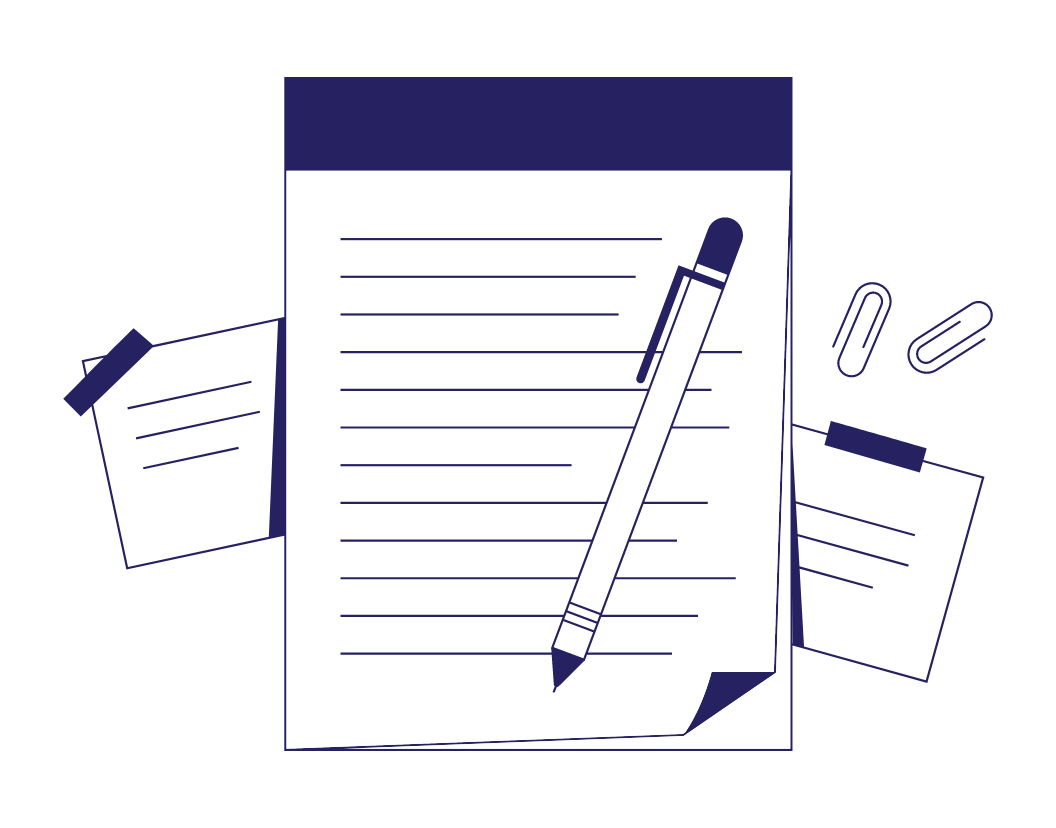In this article, we break down the differences between copyediting and line editing and discuss how both positively impact your business content and marketing goals. Here’s an overview of what’s to come:
- Copyediting and line editing defined
- Differences between copyediting and line editing
- The impact of these types of editing on your business
- Professional copyediting and line editing services
Copyediting and Line Editing Defined
Copyediting and line editing are distinct phases of the editing process. Line editing comes after the first phase of editing, developmental editing, and is followed by copyediting. The final phase is proofreading, a final check before your content is published or shared.
Line Editing
Line editing is a line-by-line, paragraph-by-paragraph edit of your content. Think creative and stylistic edits. Line editing looks for big-picture issues, such as inconsistencies in style, language use, and the content of a piece of writing. A line edit also examines word choice, eliminates repetitive language, corrects syntax, and ensures that the tone and style are consistent and on-brand.
For businesses, an effective line edit will ensure that you’ve used your brand voice correctly to reach your target audience. Overall, the line edit makes sure your business content is compelling, persuasive, and aligned with your content goals.
Copyediting
Copyediting comes after line editing and focuses on the mechanical aspects of writing. These include spelling, capitalization, word choice, phrasing, and grammar.
For businesses, a thorough copyedit will include fact-checking and verifying your content’s data and statistics as well as optimizing SEO, keywords, and key phrases. The copyedit also ensures that your content adheres to style guides or formatting specs so that copy is consistent across platforms.
Keep in mind that copyediting is not proofreading, the final stage of the editing process before your content is published.
Differences Between Copyediting and Line Editing
| Copyediting | Line editing | ||
|---|---|---|---|
| Correct | Corrects technical aspects of writing, i.e., grammar, spelling, syntax, and capitalization | Correct | Focuses on stylistic and creative aspects of writing |
| Correct | Fact-checks and verifies information and statistics | Correct | Applies your brand voice and style |
| Correct | Applies your style guide and formatting specs | Correct | Corrects inconsistencies in language, word choice, and tone |
| Correct | Optimizes SEO, keywords, and key phrases | Incorrect | DOESN’T focus on technical errors |
| Incorrect | Is NOT the final check of your content | Incorrect | DOESN’T apply style guides or formatting specs |
| Incorrect | Is NOT a comprehensive edit | Incorrect | DOESN’T address major issues, such as lack of focus or organization in your content |
| Incorrect | DOESN’T correct issues with style or brand voice | ||
| Goal: | Creating refined and polished content | Goal: | Creating compelling and persuasive copy aligned with your content goals |
Impact on Business Writing
Both copyediting and line editing have significant effects on your business, improving the clarity, credibility, consistency, audience engagement, and success of your content.
Here are some key impacts.
1. Enhanced Communication and Clarity
Copyediting ensures clear, error-free communication in content, preventing miscommunication and enhancing the professionalism of your business.
Line editing improves the flow and readability of your content, making it more engaging and relatable for your target audience.
2. Improved Credibility
Both copyediting and line editing ensure clean, consistent, accurate content and information in your writing. Additionally, error-free content is more likely to attract prospective clients and portray your business as detail-oriented and professional.
3. Consistency and Brand Image
Copyediting ensures that your content uses the same language, style, and formatting across platforms – a feature that is proven to boost brand image.
Line editing accomplishes the same goal but does so by focusing on consistency in your content’s messaging and tone.
4. Audience Engagement and Impact
Copyediting creates clear and concise content that grabs your target audience’s attention, and line editing ensures compelling and impactful language that keeps your readers engaged in the content.
Takeaway
Copyediting and line editing are key to producing effective business content. Copyediting covers the mechanical aspects of writing, such as typos, grammar mistakes, and inconsistencies in formatting; line editing focuses on the tone and style of a piece of writing. Together, these types of editing ensure that your content reaches your target audience and is compelling and persuasive.
Need Professional Copyediting and Line Editing Services?
Copyediting and line editing require expertise and experience. Here at Proofed, our editors work 24-7 with Fortune 500 companies and successful start-ups, helping them exceed their content goals. We can also work with you to create a unique content style guide for your brand. Schedule a call with us today to see how we can streamline your editing process.


